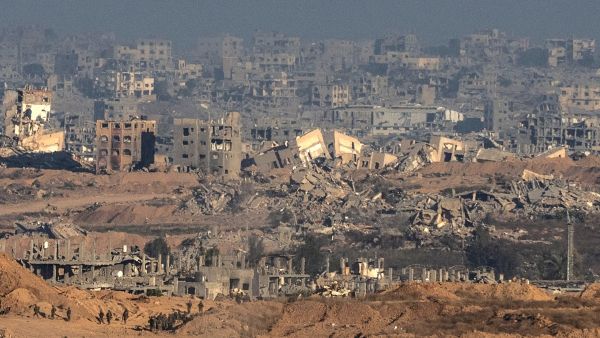ALBAWABA - Israel is getting ready for its first general strike on August 17. Families of prisoners and a number of social groups that want the war to end are leading the protests.
Even more people are afraid that the conflict will get worse, which will hurt both people and the economy. At first, the Histadrut labor group was supposed to take part, but it pulled out for a number of reasons.
The people who are organizing the strike say that keeping the war going will make the country's economic and social problems worse, in addition to the moral need to free the prisoners. Last week, the security cabinet agreed to go ahead with taking Gaza City as part of a larger military offensive against Hamas. This made people even more worried.
Experts say that even a limited stay will cost a lot, with new taxes, longer tax freezes, and big cuts to infrastructure, healthcare, education, and welfare. The Finance Ministry is looking at the prices of recent operations, such as "Gideon's Chariots," which ended after three months.
The Defense Ministry and the Finance Ministry have already agreed to give an extra 42 billion shekels over the next two years, with 28 billion shekels coming in 2025. This will be used to pay for the operation in Gaza and another battle against Iran.
Government officials say, though, that there has been no real talk in the government or the Knesset about how the occupation of Gaza will affect the country's finances in the long run. It is thought that calling up a quarter of a million reservists before the end of the year would cost 7.5 billion shekels per month. Other costs like fuel, ammo, and emergency help could add another 12–15 billion shekels per month.
Former IDF budget chief Brig. Gen. (Res.) Ram Aminach warned that under international law, Israel would have to provide all civil services in Gaza after the war, including water, sanitation, electricity, healthcare, and more, without being able to collect local taxes or rely on foreign aid.
Channel 12 says that holding Gaza City by itself for three months could cost at least 45 billion shekels, which would mean that the budget gap would grow by 2% and state spending would have to be cut by 7%. Full control of the Strip could cost 20 billion shekels a year just for management. The total cost could be 120 to 180 billion shekels.
Officials in Israel's Finance Ministry say that this kind of spending could cause the budget deficit to rise to 6–7% this year and again in 2026. Global credit rating agencies already have a bad view of Israel's future, and they may lower its rating even more, putting it on the same level as Peru or Thailand.
According to economic experts, this choice could lead to higher taxes, big cuts to vital services, and more credit downgrades, making it one of the most expensive in the current war. So far, the war is thought to have cost 300 billion shekels, which will be paid for by Israeli taxes.










